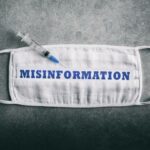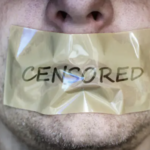The Voice Debate: Misinformation and Disinformation Run Rife on Social Media

Warnings are emerging about widespread misinformation’ and disinformation regarding the substance and potential effect of the Voice to Parliament in the lead-up to the historic referendum on Saturday, 14 October 2023.
The situation once again raises concerns about the use of social media to spread distorted and blatantly fabricated information to push an agenda, as has occurred so often in the past; particularly and whether checks and balances should be placed on misinformation and disinformation being spread to push an agenda and publishers made accountable civilly or even criminally for perverting the democratic process.
The difference between misinformation and disinformation
While the terms are sometimes used interchangeably, there is a difference between misinformation and disinformation.
Misinformation is false or inaccurate information that is deliberately intended to deceive, but does not necessarily push a particular social or political agenda.
Disinformation is misinformation that is typically intended to push an agenda, which in the context of the Voice debate is to influence Australians to vote one way or the other at the upcoming referendum
Warnings about false information
As Australians prepare to decide whether an Indigenous Voice should be contained in the Constitution, commentators are warning of an “incredibly large volume” of both misinformation and disinformation circulating in relation to the issue.
And no one is going to argue that it’s important to know the difference between what is ‘real’ information and ‘false’ information – the democratic process relies on educated voters.
The problem with social media
Traditionally, mainstream media would have been the mainstay of information in circumstances such as this, but of course with the rise in popularity of social media everyone has a platform and the opportunity to express their own views.
Add in the ability of social media to use clever algorithms to ‘focus’ your feed, and the increasing capabilities of AI, it’s becoming really difficult at times, to tell the ‘fake news’ from the real news.
In recent years, one might even argue that the mainstream media, while still claiming to be impartial, is facing a raft of issues which mean that its independence is increasingly compromised.
Adding further fuel to the debate is whether or not we can actually believe what politicians – those elected to act in our best interests – actually say publicly. There have been enough scandals in recent times to question integrity, honesty, transparency and to question whether what gets trotted out via press offices is real or propaganda.
Currently in the US this has been playing out in a case known as Missouri Vs Biden. In very general terms (because the case is complex and the judicial system in the US even more so), a recent decision by the Fifth Circuit Court in early September ruled against the US Federal Government.
Protecting Freedom of Speech
The court found that some of the communications between the federal government and the social media companies to try to fight alleged COVID-19 misinformation “coerced or significantly encouraged social media platforms to moderate content”, which violated the First Amendment.
The First Amendment protects freedom of speech. In Australia, of course, while the Constitution implies freedom of speech, it is not guaranteed.
There’s no doubt that in the information age, not only does it pay to be getting information from a wide variety of sources, it pays to be particularly selective – to keep asking your own questions and doing your own research. The lines are often blurred, sometimes months later surprising misinformation is uncovered or, in some circumstances more information comes to light, meaning that something that was once considered to be untrue, can be proven true with additional information and insight.
A helpful article headlined: Voice to Parliament: How to spot misinformation – and what to do about it, recently published by SBSNews, reported that according to the experts, a common tool used in mis-and disinformation is emotive language.
But couldn’t that also be a misnomer? The Voice has had passionate supporters for both sides – even Aboriginal people themselves aren’t 100% united on The Voice to Parliament.
What about thinking for ourselves?
Perhaps this is a good point to ask ourselves whether or not we actually want to retain the right to have incredible amounts of information at our fingertips and be able to remain personally discerning, rather than have it legislated for us.
Since February 2021, social media companies such as Facebook and ‘X’ (fomerly Twitter) have been complying with a voluntary set of standards outlined in the Australian Code of Practice on Disinformation and Misinformation (the DIGI Code).
But the Federal Government is also planning to go further by introducing the Communications Legislation Amendment (Combatting Misinformation and Disinformation) Bill 2023 which proposes new laws to empower the Australian Communications and Media Authority (ACMA) – the statutory body that monitors communications and media – to be able to stop the threat mis- and disinformation pose to Australians, and our “democracy, society and economy”.
What’s disturbing is that while ACMA doesn’t have the power to determine what might be “truth” it’s not being legislated either – and it would be problematic to do so.
Have you ever heard the saying: ‘Everyone had their own version of the truth?”
Legislating Misinformation … and the Truth
We’re human – our ability to pick and choose, and our diversity, is something to be celebrated. Telling people how to think – limiting access to different points of view – is a very slippery slope towards collectivism, which goes against the fundamental principles of democracy.
Furthermore, it hinders healthy debate which is critical for keeping those in authority accountable, and it also fuels innovation.
Any laws which seriously threaten censorship – the ability of individuals to express themselves need to be considered carefully.
It’s important to ensure that those who feel they have been defamed or had their reputations tarnished have the right to stand up for their reputation, and defamation laws offer those protections.
There are already only very limited protections in the laws for journalists and whistleblowers.
However, laws such as the proposed Misinformation and Disinformation Bill threaten to open the floodgates of litigation which will mean that smaller independent news sources will likely begin to disappear, along with the members of the public who are determined to speak out, limiting sources of information, discourse and discussion, and failing to provide enough varied information for any of us to have the opportunity to think critically, to assess and form a considered viewpoint.







